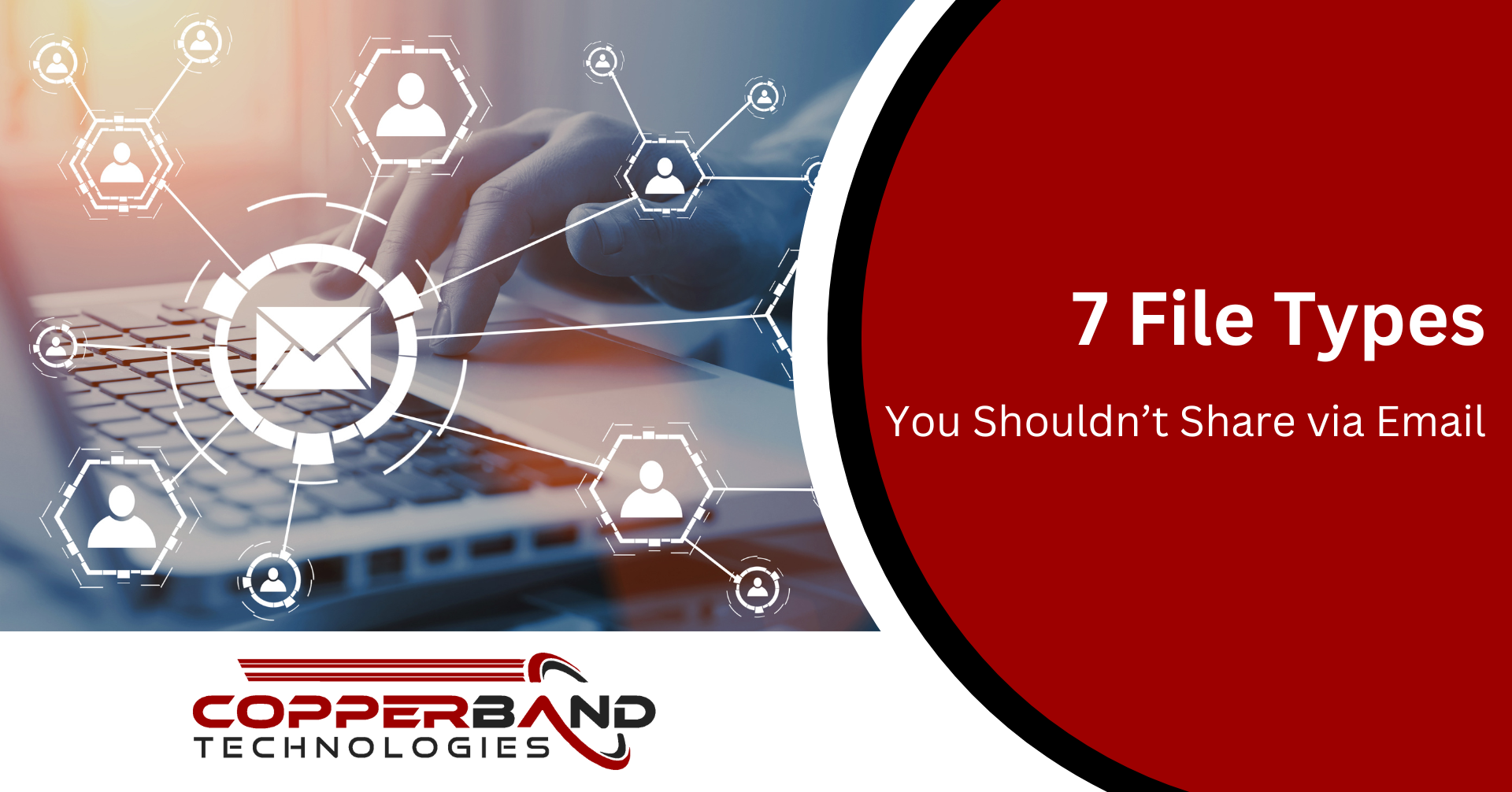7 File Types You Shouldn’t Share via Email

The Risks of Email Attachments
Email has become a cornerstone of our daily communication. But just because it’s ubiquitous doesn’t mean it’s always the right tool for the job, especially when handling certain file types. Whether due to size constraints or security concerns, several file types are better off not being sent via email.
1. Financial Documents
Examples: Tax returns, bank statements, payroll records.
Emails can be intercepted, and even with encryption, there’s a risk of a breach. Financial data in the wrong hands can lead to identity theft, financial fraud, and more. If you need to share such details, use a secure file sharing platform or a dedicated portal often provided by financial institutions.
2. Personal Identification Documents
Examples: Passports, driving licenses, social security cards.
These documents are a goldmine for identity thieves. Sharing them via email exposes you to a risk, even if it’s with someone you trust. Additionally, many cloud services offer encrypted file sharing to ensure that only the intended recipient views the document.
3. Medical Records
Examples: Medical histories, insurance information, prescription details.
Medical records often contain personal identifiers, making them ripe targets for misuse. Furthermore, using a dedicated cloud service designed for medical record storage can offer HIPAA-compliant solutions that prioritize security.
4. Large Media Files
Examples: Videos, high-resolution images, CAD files.
Apart from security concerns, size is another valid reason not to use email. Most email platforms have attachment size limits. Sharing large media files through the cloud not only bypasses these restrictions but also offers faster upload and download speeds.
5. Proprietary Business Information
Examples: Contracts, business plans, prototypes.
For businesses in Clarksville and beyond, proprietary data can be the backbone of their competitive edge. Entrusting such data to email can be risky. Instead, turn to a managed service provider specializing in secure file sharing.
6. Legal Documents
Examples: Wills, divorce papers, property deeds.
Legal documents carry sensitive personal and sometimes financial information that can have grave consequences if mishandled or misused. That is to say, sharing them over a non-secure platform exposes them to unnecessary risks.
7. Intellectual Property
Examples: Patents, copyrighted material, trade secrets.
Intellectual property can be the lifeblood of businesses, especially in tech or creative industries. Sharing these files via email can lead to leaks, theft, or unintentional dissemination.
Using a File Sharing System: A Safer Alternative
File sharing systems, especially those based in the cloud, offer numerous advantages over traditional email. Here’s why they’re the safer choice:
- Advanced Encryption: Modern file sharing platforms use high-level encryption, ensuring that even if data is intercepted, it remains unreadable to unauthorized parties.
- Multi-Factor Authentication (MFA): By requiring multiple verification steps, MFA ensures heightened security. Even if a password is compromised, unauthorized access is still thwarted.
- Controlled Access & Permission Levels: Owners can set different permission levels, allowing them to dictate who can view, edit, or share a file, and can revoke access at any time.
- Audit Trails & Activity Monitoring: Cloud services often track file access and edits, allowing for clear oversight of file activity and helping identify any suspicious actions.
- Seamless Version Control: File sharing platforms automatically save new versions after edits, eliminating confusion and allowing easy reversion to previous states if needed.
- Built-In Disaster Recovery: Automatic backups ensure that even in unexpected catastrophes, data remains safe and easily restorable, offering peace of mind.
For secure, efficient, and reliable file sharing, cloud-based platforms clearly outshine traditional email, making them the preferred choice for sensitive and essential data transfers.
Sharing Smart in a Digital Age
As we continue to navigate a digital landscape, understanding the nuances of file sharing becomes essential. Not all platforms offer equal security, and email, while convenient, may not always be the safest choice. As a Clarksville resident or business owner, leaning on trusted cloud services and a dedicated managed service provider can make all the difference in safeguarding your valuable information.
By integrating these file types, the advantages of cloud services, and the local touch of a managed service provider in Clarksville, this article provides an engaging and informative overview of smarter, safer digital file sharing.
Find the Right Managed Service Provider in Clarksville
If you’re based in Clarksville and are seeking the right cloud services for your business or personal needs, make sure you choose a provider who understands both the value of your data and the intricacies of secure file sharing. Engaging with a local managed service provider can offer tailored solutions, ensuring you never have to resort to risky email file sharing again.
Ready to take the next step in securing your files and peace of mind? Don’t leave your data’s security to chance. Reach out to us at Copperband Technologies today, and let’s discuss the best IT solutions tailored for your needs.






